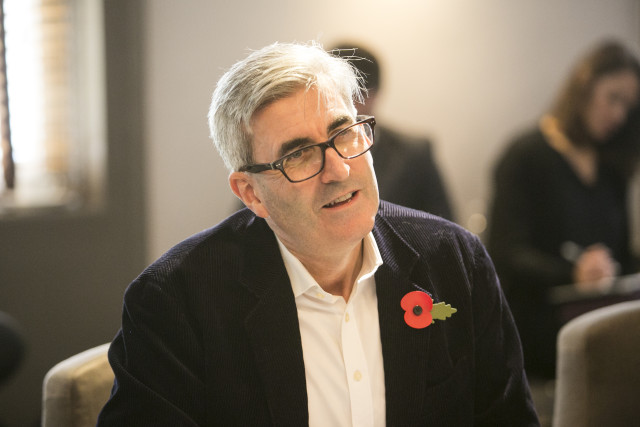What have building engineers ever done for us?

Like Monty Python said - apart from the sanitation, warmth, cooling, fresh water, electrical services, controls, lighting, and ventilation, what have Building Services engineers ever done for us? David Frise of BESA asks the question.
Do we matter? What do we contribute to society? Are we valuable?
I’m sure everyone in our industry would answer ‘yes’ to all of the above, but how do we explain our ‘value’ to our clients – many of whom are much more interested in the ‘cost’ of what we do. How do we prove it?
The often quoted ‘What have the Romans ever done for us?’ sketch from Monty Python’s Life of Brian hit on an enduring truth that it is often easier to criticise than to look for the positive in a situation. In this instance that meant ignoring the clearly useful and life enhancing ‘aquaduct’ (not to mention ‘peace’). In our world, it means we don’t really get noticed unless something goes wrong.
Building engineering professionals succeed in the shadows. If occupants are not too hot or cold, if the lighting is perfect, and they can’t hear any motors or pumps – we have succeeded…and nobody notices.
However, that means a sector that includes more than 60,000 businesses, over 350,000 skilled professionals and comprises some 40% of UK construction by value is often overlooked. Building engineering services directly contribute £100bn to the country’s GDP and enable a further £600bn – what we do affects everyone in our society.
Public discussion
Our industry is a specialist in tackling invisible threats and ventilation is a prime example. Out of sight and out of mind for so long, a Cinderella service, but now front and central with people spending more time indoors during lockdown and growing increasingly fearful of airborne threats to their health.
Buildings are also responsible for more than 40% of the country’s total carbon emissions, so engineering services also provide a significant part of the solution to the climate crisis.

Yet, it is not only consumers and clients who undervalue our work. We do it ourselves by touting our work to the lowest bidder, which leads us to undermine supply chain colleagues and putting them under pressure to deliver against unrealistic programmes. Not a good recipe for value.
Part of breaking this pernicious cycle, is having a methodology that measures and explains how we add value and why our contribution deserves better recognition and remuneration. That is what the Construction Innovation Hub is trying to create with its innovative Value Toolkit, which has now been released to our industry for testing.
Taking its inspiration from work carried out by the Construction Leadership Council – and Ann Bentley, in particular – it aims to show how much better we can do things and demonstrate real, concrete added value for public and private sector clients.
More than 70 early adopters have signed up to be part of the pilot phase, including Arup, Mace, Mott MacDonald and Morgan Sindall. They will use the Value Toolkit on live projects and programmes over the next six months to measure its usefulness. And the member bodies of the engineering services alliance Actuate UK support the initiative as it can bring positive, evidence-based change.
To understand if we are hitting targets and delivering value for our clients, we must measure a range of factors throughout the whole life of a building. The Toolkit gives its users the wherewithal to measure each stage of a project from design to construction and on through occupation. It also creates a data feedback loop to ensure we can learn vital lessons for the future.
It chimes nicely with the government’s new Construction Playbook, which includes as part of its ethos a determination to test (and hopefully reject) unrealistically low bids, which repeatedly undermine the sector’s ability to deliver value.
The challenge to the industry and our clients, is to use the value toolkit as intended. Not just in the initial stages where anything seems possible but when it gets difficult, when budget and programme are under pressure and compromises inevitably need to be made. That will be the true test of this excellent initiative.
The Playbook states that ‘social value’ should contribute as much as 10% of the awarding criteria for public sector projects. That is a laudable aim, but a hard thing to measure unless you have a robust and all-encompassing approach. With the Value Toolkit that has just moved a little closer.
David Frise is CEO at BESA







